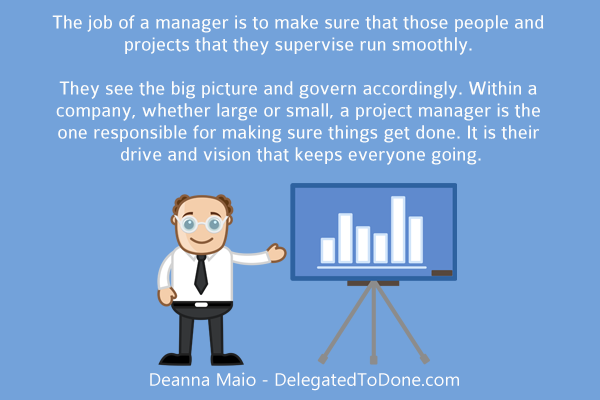You have heard the term, but what exactly does a project manager do? The name sounds nice, but without some expertise to back it up, things won’t get done. Here are some of the roles that you or your designated project manager will assume when leading a project. The job of a manager is to make sure that those people and projects that they supervise run smoothly. They see the big picture and govern accordingly. Within a company, whether large or small, a project manager is the one responsible for making sure things get done. It is their drive and vision that keeps everyone going. 5 Roles of a Project Manager With the above information in mind, empower your project manager with the following roles in order for them to carry out their duties.
- Appropriate level of authority – You don’t have to have the title “Project Manager” behind your name to function as one. Whoever is in charge of delegating the responsibility of a project head makes the decision about who can fill that role. Maybe for a smaller project, the responsibility can be taken on by another team member. The important thing is to make sure that this person has the authority to delegate and that all potential team members understand that from the beginning.
- Project Sponsor – This can be your project manager if you allow them to choose their team. When a departmental manager is responsible for providing resources, the project manager must approach them with the number of team members they will require and the time frame for their duties. The sponsor encourages new ideas to be carried out to their outcome.
- Access to high-level decision makers – If there is someone above the project manager who is negotiating with the client, the project manager either needs to be in on those meetings or made aware of what is discussed. From there, decisions can be made about moving the project forward with the client’s needs in mind.
- Regular progress reporting – You don’t have to meet with the entire team each day, but there needs to be a process in place for keeping everyone up to speed on changes, client feedback and milestones. This can be accomplished with weekly meetings, group emails and individual progress reporting.
- Awareness of hidden agendas – Anyone who works in a corporate environment knows that politics plays a big role in how business plays out. If you suspect an adversary might be waiting in the wings to derail your plans, be proactive. Include them from the beginning so you know exactly where they stand. Avoid being blindsided later on.

